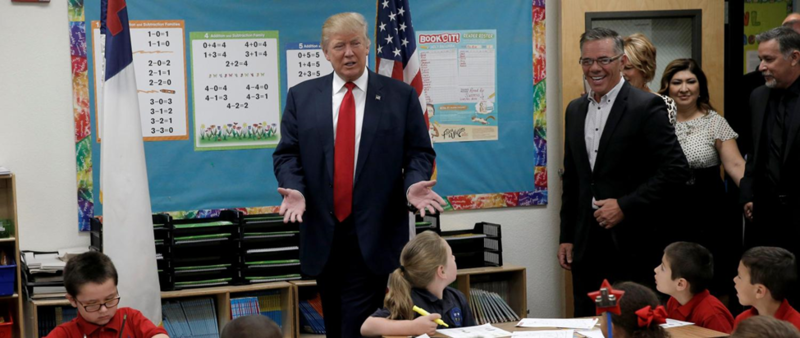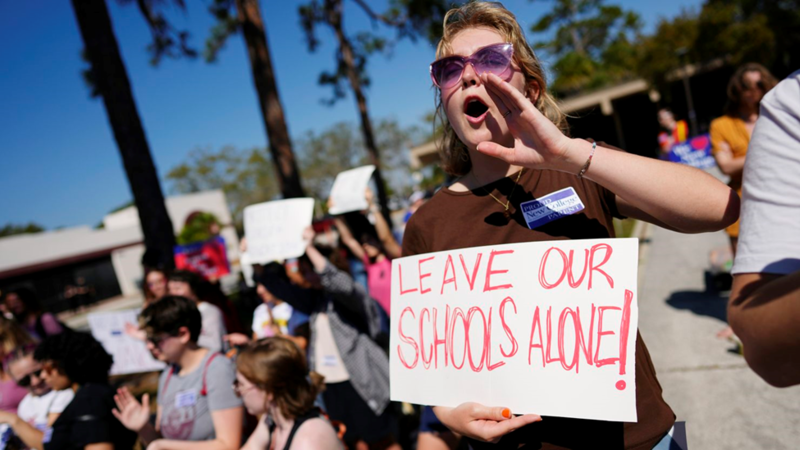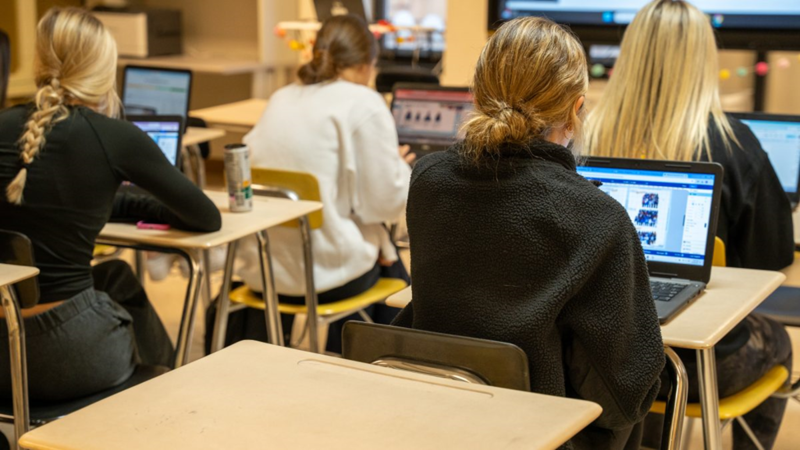The Future of American Education: Trump’s Radical Overhaul
Input
Modified
The Disintegration of Federal Oversight and Budget Cuts The Conflict Over Diversity, Equity, and Inclusion Programs The Uncertain Future of American Education

The Disintegration of Federal Oversight and Budget Cuts
The Trump administration's education reforms drastically cut federal oversight, slash funding, and eliminate DEI programs, aiming for localized control but sparking concerns over worsening inequality. As legal battles unfold, the future of American education remains uncertain, with potential long-term consequences for students and institutions alike.
The Trump administration has initiated one of the most ambitious education reform initiatives in the history of the United States, with the objective of significantly altering the American educational system. The administration is redefining the role of federal oversight in education by implementing significant budget cuts, eliminating Diversity, Equity, and Inclusion (DEI) programs, and advocating for state and local control. Proponents contend that these measures will promote meritocracy and expedite bureaucracy; however, critics caution that they could exacerbate existing inequalities and undermine public education. The question of whether these reforms will enhance or undermine America's education system remains unresolved as legal disputes escalate, and institutions attempt to adjust.
A significant reduction in the budget of the Department of Education (DOE) is the cornerstone of Trump's education reform strategy. Several critical programs are the focus of the proposed cuts, which equate to billions of dollars. The disparity between well-funded and under-resourced schools is at risk of widening due to funding reductions for teacher training, special education, and financial aid. The administration contends that these reductions are essential for the purpose of promoting a more locally focused education model and eliminating inefficiencies. Nevertheless, there is concern among critics that the most vulnerable groups will be low-income and marginalized communities, which depend significantly on federal assistance.
The impact of these budget cuts on higher education is one of the most contentious aspects. The accessibility of college for low-income students is becoming more uncertain due to the potential loss of federal grants and financial aid. Institutions such as the University of Washington and others have announced admissions cuts as a result of funding shortages, placing a particular burden on graduate programs. Additional financial constraints could hinder universities' capacity to recruit faculty and conduct research. The long-standing American ideal of higher education as a pathway to economic mobility may become an unattainable dream for many if these trends persist.
The scope of Trump's education policy is not limited to the mere reduction of expenditures. He has publicly referred to the Department of Energy as a "con job" and has advocated for its complete dismantling. The administration believes that education can be more effectively customized to the unique needs of individual communities by transferring its responsibilities to state and local governments. Nevertheless, critics caution that this action could lead to disparities in the quality of education among different states. National education standards and federal programs such as Title I funding for low-income schools are essential in guaranteeing that students nationwide receive an equivalent education. The dissolution of the Department of Education could result in the loss of these safeguards, depriving students in underfunded districts of the resources necessary to achieve success.

The Conflict Over Diversity, Equity, and Inclusion Programs
The elimination of Diversity, Equity, and Inclusion (DEI) programs is potentially the most contentious aspect of the Trump administration's education policy. The administration has issued an ultimatum to educational institutions: either dismantle DEI programs within two weeks or forfeit federal funding. This decision is based on an executive order that the administration believes is intended at limiting the overreach of "woke" ideology in schools and universities. According to the order, racial preferences in admissions, financial aid, and hiring are not allowed because they give some groups unfair advantages instead of promoting true equality.
Advocators for this policy assert that it fosters a merit-based system, guaranteeing that all faculty members and students are assessed solely on the basis of their qualifications. They contend that the elimination of DEI programs will prevent racial and gender-based discrimination in education. Nevertheless, opponents argue that these initiatives were intended to address historical disparities and offer assistance to underrepresented communities. They contend that the dismantling of DEI initiatives will have a disproportionate effect on students of color, first-generation college attendees, and those from disadvantaged backgrounds.
Protests and legal challenges have been initiated across the country as a result of the termination of DEI programs. The American Federation of Teachers (AFT) has filed lawsuits in conjunction with civil rights organizations, contending that the policy infringes upon constitutional protections and limits academic freedom. Numerous states, such as California and New York, have pledged to defy federal pressure and encourage their institutions to preserve their current DEI initiatives, despite the potential loss of funding. The future of diversity initiatives in American education is likely to be significantly influenced by the legal disputes surrounding these policies for years to come.

The Uncertain Future of American Education
The future of American education is more uncertain than ever due to these widespread changes in motion. Education in the United States may become a fragmented system with significant variations in quality and resources from state to state if Trump is successful in his efforts to reduce or eliminate federal oversight. The maintenance of even fundamental educational services may be a challenge for poorer states, while wealthier states with robust local funding may thrive. This system would represent a substantial departure from the notion of a national education standard, which has served as a cornerstone of U.S. policy for an extended period.
Additionally, the influence of these modifications on the subsequent generation of students is immeasurable. The absence of financial aid, teacher training, and diversity initiatives could result in a reduction in the number of opportunities for success for many. The prospects of millions of students could be further restricted as educational disparities, which are already a substantial issue in the United States, continue to expand. In addition, the ongoing legal disputes regarding DEI policies have the potential to establish a precedent for future education policies, which could impact the manner in which race, equity, and access to education are addressed in the years ahead.
The Trump administration's education reforms are not merely about policy; they represent a fundamental shift in the philosophy of American education. This is evident as the nation observes these developments taking place. It remains to be determined whether these modifications will be perceived as a courageous initiative toward efficiency or a reckless dismantling of public education. In the interim, students, educators, and policymakers must prepare for an uncertain journey that will influence the educational landscape of the nation for future generations.





















